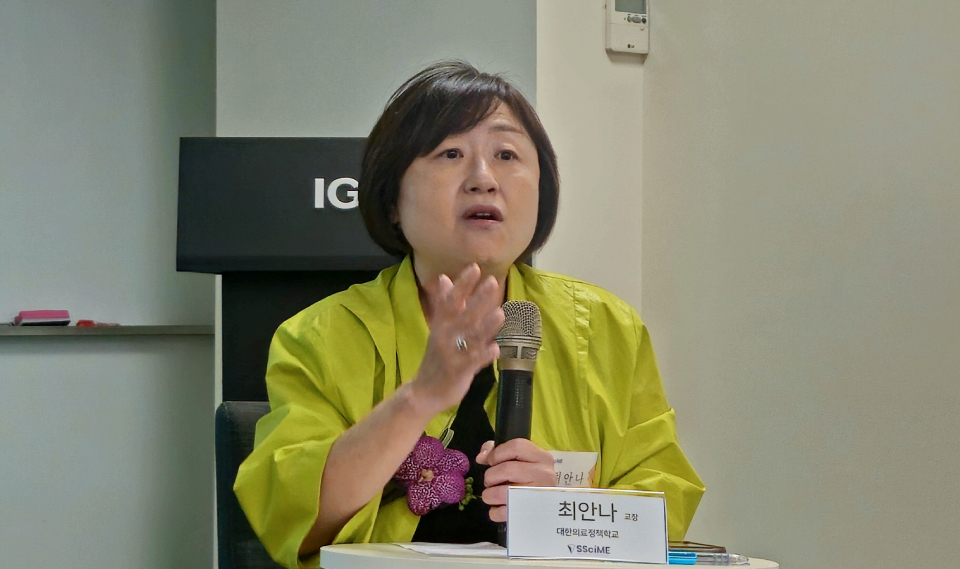
As the government-doctor conflict has continued for more than a year, physicians are increasingly convinced that the medical community must take the lead in resolving the situation.
They pointed out that waiting for the government to come up with a solution will narrow the standing room for medical students and trainee doctors.
“Now that the political power has changed hands and a new government is in place, it's time for the medical community to explore the next steps,” said Choi Anna, dean of the Korea Medical Policy School and a former director of the Korean Medical Association (KMA), participating as a discussion panel in the inaugural meeting of the Social Science and Medical Education Research Association.
The society was formed to develop the healthcare system through collaboration between social science, education, and policy.
Choi said that the government-doctor conflict has sparked calls for the medical community to move away from “bureaucracy,” but “we need to check whether the medical community is ready to move beyond bureaucracy and practice professionalism.”
“If we don't overcome this problem, healthcare policy will continue to be driven by the government,” she said, pointing to the limitations of medical governance and lack of internal consensus that she experienced while working as a KMA director.
In the same vein, Choi said the attitude of turning the return of medical students and professionals into an individual issue and waiting for the government to take action must also change.
If the medical community maintains this attitude, “medical students and trainee doctors will feel helpless and be pushed to the edge of a cliff,” she said.
“It's time for the medical community to take charge of its direction,” she said. “We must show the government and society the vision of the ‘public good’ that the medical profession is pursuing and to instill trust in the younger generation.”
‘Don't 'demonize' politics but participate in it more actively’
Political scientists agreed that the medical community should stop demonizing politics.
“We should participate in politics as much as possible, even if there are many restrictions,” said Chang Boo-seung, a professor of political science at Nihon Kwansei University of Foreign Studies. “Specifically, I recommend joining a political party. If you pay party fees and participate in internal activities, you will have a voice and have the opportunity to raise your agenda.”
Political participation shouldn't be seen as mudslinging or futile,” Chang said. “We need to expand our radius of activity in solidarity with other social groups. We must make efforts to find common denominators with non-doctors as well.”
Park Jong-sung, a former professor of political science and diplomacy at Seowon University, said, “We must get away from the perception that the medical community demonizes and shuns politics. We shouldn't turn a blind eye to politics but present the medical community's point of view, even to the President if necessary.”
“Politics starts with words and ends with words, so we need to master the art of talking,” Park said. “The medical community needs to win (in socio-political conflicts), and to do so, we need to learn how to speak well to convince the public. I hope the Society for Social Science and Medical Education Research Association will play such a role.”

